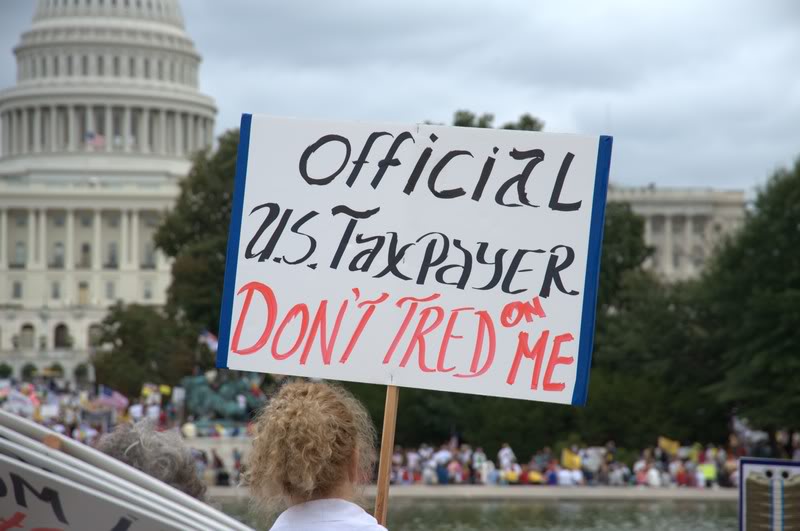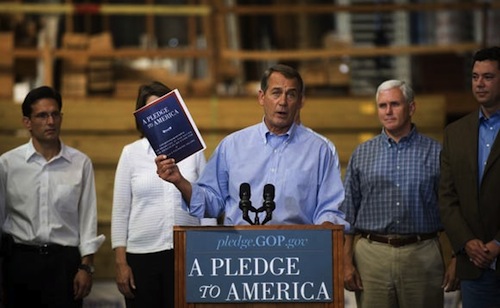Last week, the Republican Party released the full text of its Pledge to America, a document that explains the GOP’s plan for fixing what’s wrong with this country—most of which rhymes with “the hawk’s pajamas,” if you get their meaning. The content of the Pledge is not exactly a thunderbolt. It advocates the same policies that Republicans have been pushing for the last two to 74 years, as well as certain politically unlikely plans, such as eliminating the Environmental Protection Agency, that qualify less as a promise than a threat. The Republican Party’s pledge to America is that they will lower taxes and deregulate industry, plus repeal health care. While the notion of an America in which each session of Congress devotes itself to undoing the legislation passed by the previous session is exciting, most the Pledge itself is unremarkable. What is remarkable is its introduction—500 words of hyperbolic nationalism that are the subject of today’s Close Reading.
Tag Archives: republican party
Have we finally reached the Grand Old Hangover?

As opposed to all those unofficial US taxpayers, the Chinese. Props to moronswithsigns.blogspot.com.
Students of history—particularly my students of history—will remember Ronald Reagan’s genius unification of the Republican Party during the 1980 election. Through sheer strength of charisma and occasionally insane rhetoric, Reagan consolidated three fundamentally disparate groups—old-time political conservatives, the nouveau riche, and church people—into what we now recognize as the contemporary GOP. Those of us who grew up under Reagan tend to take this alliance for granted, but it wasn’t always so. For most of the twentieth century, evangelical Christians were a reliable constituency of the Democratic Party, and the newly wealthy were anybody’s guess. The Great Communicator’s success as a politician, if not as a President, was his ability to describe the Republican agenda in terms these three groups understood. Hence the Evil Empire speech, in which the principle feature of communism is the abolition not of private property but of religion. “I would rather see my little girls die now, still believing in God, than have them grow up under communism,” sounds like an utterly bonkers thing for the President of the United States to say into a microphone, but that microphone was provided by the National Association of Evangelicals. When he spoke to the Club For Growth, it was all tax cuts and welfare queens, and when he spoke to the hawks in Congress, it was the Strategic Defense Initiative. All of it boiled down to one easily digestible GOP platform, and there lied the genius of Ronald Reagan.

